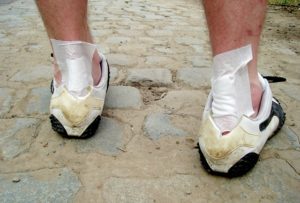- Rejuvenating Acupuncture818 East Main St.
Riverhead, N.Y. 11901631-591-1980 Available by Appointment
Acupuncture
Acupuncture and Men’s Health
Acupuncture and Men’s Health
Traditional Chinese Medicine (TCM) is a complete medical system that has been around for nearly 3,000 years. It combines nutrition, herbs, acupuncture and other modalities to help keep the body functioning properly, while also treating any ailments that might occur. TCM has been used to treat both men and women, regardless of age and it is frequently becoming the medical choice for those who prefer to treat things naturally.
There are certain health issues more prevalent in men than women and many of these conditions can be easily controlled or treated using Traditional Chinese Medicine. Afflictions such as high blood pressure, depression, urinary issues, stress and prostate problems are just a few of the issues that are more frequently seen in men than women. And these issues, along with many others, respond very favorably to acupuncture and TCM.
Most people think of acupuncture for pain relief, but the truth is it can treat much more. Acupuncture can help with anxiety, depression, heart health, insomnia, digestive issues and of course any kind of pain. Acupuncture is most commonly thought of as a way of relieving pain and it is usually sought out after everything else has failed to provide adequate pain relief. Without purposely trying to cause a debate between the sexes, it is statistically shown that men are less likely to seek out help when they experience pain, as they don’t want to appear weak. This is where something like acupuncture can be a great asset for men. Regular acupuncture treatments as preventive medicine can help keep them in top shape, thus avoiding aches, pains, strains and pulls.
Acupuncture also calms the mind, the nervous system and the endocrine system. All of these things work in conjunction to keep the body functioning properly. However, in the world we currently live in, stress, anxiety and depression have become rampant. Specific acupuncture points can literally decrease the heart rate, slow breathing and relax the mind in a matter of seconds to minutes. This helps alleviate the added stress that men, in particular, feel on a daily basis.
TCM has a long history of being used to help with fertility issues and sexual vitality. As men age and life takes over, many men experience a lack of libido and decreased sexual function. Improperly balanced hormones affected by long hours at the office, improper diet and lack of sleep can all lead to sexual dysfunction and fertility problems. This all relates to the kidneys in Traditional Chinese Medicine. Regular acupuncture treatments and herbs are a great way to return hormone levels to normal and restore sexual vitality in men.
In much the same way that TCM helps balance hormones within the kidney and endocrine system, it is also frequently used to regulate the circulatory system. Men, once again, tend to have higher levels of stress that can affect the heart and circulatory systems. Specific acupuncture points and herbs can easily lower blood pressure, calm heart arrhythmias and increase circulation to the peripheral areas of the body.
This just touches the tip of the iceberg when it comes to men’s health. But it is easy to see why choosing acupuncture to help keep the body in alignment is a great option, especially for men.
Why You Should Get Regular Acupuncture Treatments
Why You Should Get Regular Acupuncture Treatments
Everybody knows you should see your family physician at least once a year and your dentist at least twice a year. But not everybody knows about acupuncture and Traditional Chinese Medicine and the many benefits it can provide for you. If you start incorporating acupuncture into your health and wellness regime, you may not have to rely on the family physician so much for those minor little issues. Let’s look at how getting regular acupuncture treatments can help you stay happy and healthy.
There are many ways acupuncture treatments can change a person’s life. One of the most noticeable is acupuncture can get you to look at your health from a completely different perspective. This could mean you might start taking a more in depth look at your health, which may allow you to veer away from some of the mainstream medical practices such as multiple pharmaceuticals. Many long-term acupuncture patients find they no longer need all the medications prescribed by their family physician, because the symptoms have been controlled using acupuncture.
Acupuncture is great for prevention. Because regular acupuncture treatments can balance hormones and boost immunity, there is a good chance you won’t need that annual flu shot or all those over-the-counter cold medications. A trained acupuncturist can spot a problem like decreased immunity from a mile away. It can appear as symptoms such as chronic fatigue, insomnia and even body temperature fluctuations. A couple of treatments can make a big difference.
What about relieving some of that extra stress we all deal with? Yes, regular acupuncture treatments can keep that at bay too. Many people don’t equate being poked with tiny needles as a relaxation technique, but it truly is relaxing. Many patients actually fall asleep after or while the needles are being placed. And the effects can last for days or even weeks. So the next time you feel irritable and overwhelmed, check out your local licensed acupuncturist.
Regular acupuncture treatments can help you save money. What? It’s true. This goes back to the previous benefits. If you don’t need as many pharmaceuticals, you will ultimately save money. Also, conditions like stress, anxiety, fatigue and depression can keep you from going to work, possibly costing you several days of pay. But with regular acupuncture treatments, your moods can be more effectively managed and you won’t need to miss work as frequently.
And the most popular reason to get regular acupuncture treatments is that it will help you remain pain free. We all have aches and pains. But research has shown acupuncture is more effective than opioids for controlling things like arthritic pain in the joints. It is also be incorporated into hospital emergency rooms throughout the United States, so people don’t need as many pain medications. As a matter of fact, in Asia, acupuncture is sometimes used by itself during and after surgical procedures to treat pain.
While many of you may have a needle phobia, don’t let that deter you. Acupuncture is part of an amazing medical system that has been around for nearly 3,000 years. In comparison, Western medicine has only been around for about 200 to 250 years. That puts things in perspective a little, especially when you consider most people in Asian countries live longer, happier, healthier lives than almost everybody in the United States. There’s no better time than the present to start a good habit. Just be sure to seek out a fully trained and licensed acupuncturist. Your whole life just might change for the better.
Acupuncture and TCM for Sprains and Strains
We’ve all heard of and maybe even experienced a sprain or a strain. But do you really know the difference? A sprain is defined as a stretch or tear of a ligament. A strain, on the other hand, is defined as an injury to a muscle or tendon. Sprains can result from a fall, a sudden twist or a blow to the body that forces a joint out of place, while a strain can happen from twisting or pulling a muscle or tendon.
There are specific ways of telling the difference between a sprain and a strain based on the symptoms that appear. Symptoms of a sprain include pain, swelling, instability, bruising and loss of functional joint ability. Sometimes there is an audible pop when the injury occurs. There are different levels of sprains too. A Grade I or mild sprain is generally caused by overstretching or the minor tearing of a ligament, but the person will still have joint stability. A Grade II or moderate sprain is more intense, but the person only experiences some loss of joint function. A Grade III or severe sprain occurs when there is a complete tear in the ligament and the person is unable to put any weight on the joint.
Strains, on the other hand, have very different symptoms. Most people who experience a strain, will report pain, limited range of motion, muscle spasms and possibly muscle weakness. There may also be cramping, swelling and inflammation.
Instinctively, when a person experiences a sprain or a strain, learned first aid skills take over. Things like taking the pressure off the joint, raising the joint and applying ice to alleviate swelling and inflammation are all great places to start. Icing a sprain or strain is only good for the first 48 to 72 hours, as it will help decrease swelling. However, prolonged use of ice may impair movement and also interfere with the healing process because it constricts the tissues and impedes blood flow. But there are other possible solutions to healing a sprain or a strain. And one of these would be to see an acupuncturist or Traditional Chinese Medicine practitioner.
Traditional Chinese Medicine practitioners have many tools at their disposal that can assist in increased healing of a strain or sprain. When either of these injuries occur, the muscles surrounding the area tighten up in an effort to protect the injured site. This can then lead to stiffness in that joint. This is the body’s natural defense mechanism that decreases strong blood flow to the area. TCM practitioners use acupuncture and other modalities to help loosen up the muscles and increase blood flow to the area, which brings in tissue-healing oxygen and nutrients.
Increasing blood flow is just one way TCM can help. There are also specific acupressure points that reduce swelling, decrease inflammation and alleviate pain. Through the use of regular acupuncture treatments following a sprain or strain injury, the body can heal faster. The more frequently a person comes in for their acupuncture treatments, the quicker the results will occur.
5 Reasons to get Acupuncture for Allergies
Five Reasons to Get Acupuncture for Allergies
Allergies, seasonal or otherwise, is one of the biggest health issues people deal with in the United States. And the numbers are rising every year. Part of this is because our agricultural practices have changed drastically in the past 40 years and our bodies are not accustomed to dealing with genetically modified foods or the excessive amounts of pesticides now being put in and on our food. We are also being over-medicated with antibiotics used in livestock we eat and that we are prescribed by our own doctors. This has created superbugs like MRSA that no longer responding to antibiotics. Our immune systems just can’t keep up. So every year, the number of people experiencing allergies is increasing.
But what if there were a way to combat seasonal allergies without the harsh side effects of medications and to actually get to the root of the problem instead of just masking the symptoms? There is a way to do this and it’s called acupuncture.
Acupuncture and Traditional Chinese Medicine offer a permanent solution to seasonal allergies and relief from everyday allergies with an all-natural approach that will ultimately save you money. Since TCM attacks allergies in a much different method than Western medicine, there is a good chance your allergies will cease to be a problem. Western medicine knows how allergies work and what happens to the body, but there is still no explanation as to why. But, TCM doesn’t need to know why because it looks at the body as a whole and uses an elemental system to determine where there are excesses and deficiencies in each person. So the TCM treatments are completely customized to each patient, thus making them much more effective than one-size-fits-all over-the-counter medications.
When using TCM to treat allergies, practitioners focus heavily on something called Wei Qi. Wei Qi is similar to the immune system in Western medicine. Wei Qi protects the body against foreign materials that can lead to inflammation and eventually allergies. People with lower immunity/Wei Qi are more susceptible to allergies and frequent colds. Acupuncture helps to boost the Wei Qi making it more difficult for allergens to attack the body. This is one of the best reasons to get regular acupuncture treatments if you suffer from allergies of any kind.
When energy becomes blocked due to inflammation caused by allergies, symptoms will flare back up. Acupuncture helps re-establish the flow of energy throughout the body. This will help to alleviate allergy symptoms. Many people who receive acupuncture treatments report they notice changes immediately. And over time, this will help to bring the body back into balance permanently.
Acupuncture has been shown to decrease heat associated with allergies. This can manifest as a sore throat, swollen sinuses and red eyes. There are specific acupressure points on the body that can almost instantaneously relieve these symptoms.
Many allergy sufferers also report pain in various areas of the body, especially the eyes and head. Relieving pain is what acupuncture is most frequently used for and it is also what most scientific studies focus on. The pain associated with allergies can prevent people from enjoying life. But regular acupuncture treatments can help resolve that and allow people to be more active and happy.
Probably the biggest reason to seek out acupuncture for the treatment of allergies is the amount of money a person will save. People spend over $18 billion per year on over-the-counter allergy medications, most of which only give minimal relief and have side effects like drowsiness and immune system suppression. TCM can provide relief without adverse side effects and for a lot less money overall.
5 Herbal Tonics for ALLERGIES
Herbal Tonics for Allergies
An allergy occurs when your immune system reacts to a foreign substance, called an allergen. This could be anything from something you inhale to something you touch to something you eat. An allergic reaction may cause sneezing, coughing, watery eyes, a running nose, a sore throat and rashes. In severe cases, allergic reactions can induce something known as anaphylactic shock, which can actually be deadly.
According to the Asthma and Allergy Foundation of America, nearly 50 million Americans are affected by nasal allergies. These numbers are increasing too. To date, allergies are the sixth-leading cause of chronic illness in the United States. Anaphylactic reactions are typically triggered by medications, food and insect stings, with pharmaceuticals causing the most allergy-related deaths. The cost of allergies exceeds $18 billion per year!
There are ways to deal with allergies though. Obviously with life-threatening allergies, a person needs to know what they are allergic to and be very adamant about avoiding those substances. For others who deal with seasonal allergies, things aren’t as dire and the inconvenience of allergies can be navigated using many natural remedies, including Traditional Chinese Medicine (TCM).
TCM is a medical system that has been around for thousands of years. The general theory behind TCM is to treat the patient holistically, taking into account all aspects of the patient’s illness. TCM utilizes many modalities to treat the patient, including acupuncture, acupressure, herbs, formulas, cupping and nutrition. For treating allergies, there are some wonderful herbs and formulas that can be implemented. Here’s a short list of items that can be used to treat non-life-threatening allergies.
- Reishi or Medicinal Mushrooms: Medicinal mushrooms have been used for centuries to help with everything from balancing blood sugar to decreasing inflammation. But they are also well-known for their immune-boosting properties. Reishi mushrooms are adaptogenic and they help regulate stress in the body. This is great for allergy sufferers because allergies can be exacerbated by stress.
- Scutellaria or Huang Qin: This herb is frequently used to treat acute respiratory infections and bronchitis. Two key components of Huang Qin are particularly good at relieving allergic asthma attacks.
- Saposhnikovia or Fang Feng: Fang Feng is used frequently by TCM practitioners to expel and prevent wind pathogen invasions. So for allergies that prompt headaches and nasal symptoms, this is a great herb to have on hand.
- Magnolia Flower or Xin Yi Hua: Flowers are used a lot in TCM due to their aromatic nature. Xin Yi Hua is another great herb to have on hand when seasonal allergies flare up. This herb is great at relieving nasal congestion, sinus headaches and the runny nose that frequently accompanies allergies.
- Cang Er Zi San: This is an herbal formula frequently prescribed for people who are suffering from allergy attacks. Cang Er Zi San works to open up the nasal passageways, helps expel congested mucus, decreases sneezing and helps to alleviate red itchy eyes. It is a go-to herbal formula for TCM practitioners during allergy season.
Herbs can be very beneficial and help keep the body free from illness. The herbs and formulas mentioned above are just a few examples that would be good to have around if you suffer from allergies. Ask us to find out more about these herbs, we can help you navigate the world of medicinal herbs and find the exact combination right for you.





